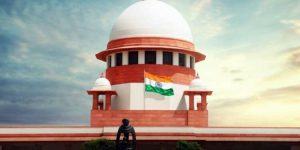Judicial Despotism:

Recent Supreme Court rulings, including on Article 370, Governor’s Bill assent powers, and judicial use of Article 142, have reignited debates over judicial overreach.
- Judicial despotism refers to a scenario where unelected judges exercise excessive power, overriding legislative and executive authority.
- It arises when courts act beyond interpretation, venturing into policy-making or governance roles.
Features of Judicial Despotism:
-
- Frequent invocation of Article 142: The power to ensure “complete justice” can be used to bypass statutory procedures (e.g., Babri Masjid ruling). Expanding PIL jurisdiction: Courts entertain petitions even without personal grievance, affecting separation of powers. Weakening democratic accountability: Judges face no electoral scrutiny unlike elected lawmakers. Supersession in appointments: Judicial collegium bypasses seniority, often in the name of diversity or discretion. Policy pronouncements without legislative mandate: E.g., issuing guidelines on mob lynching or banning crackers without codified law.




